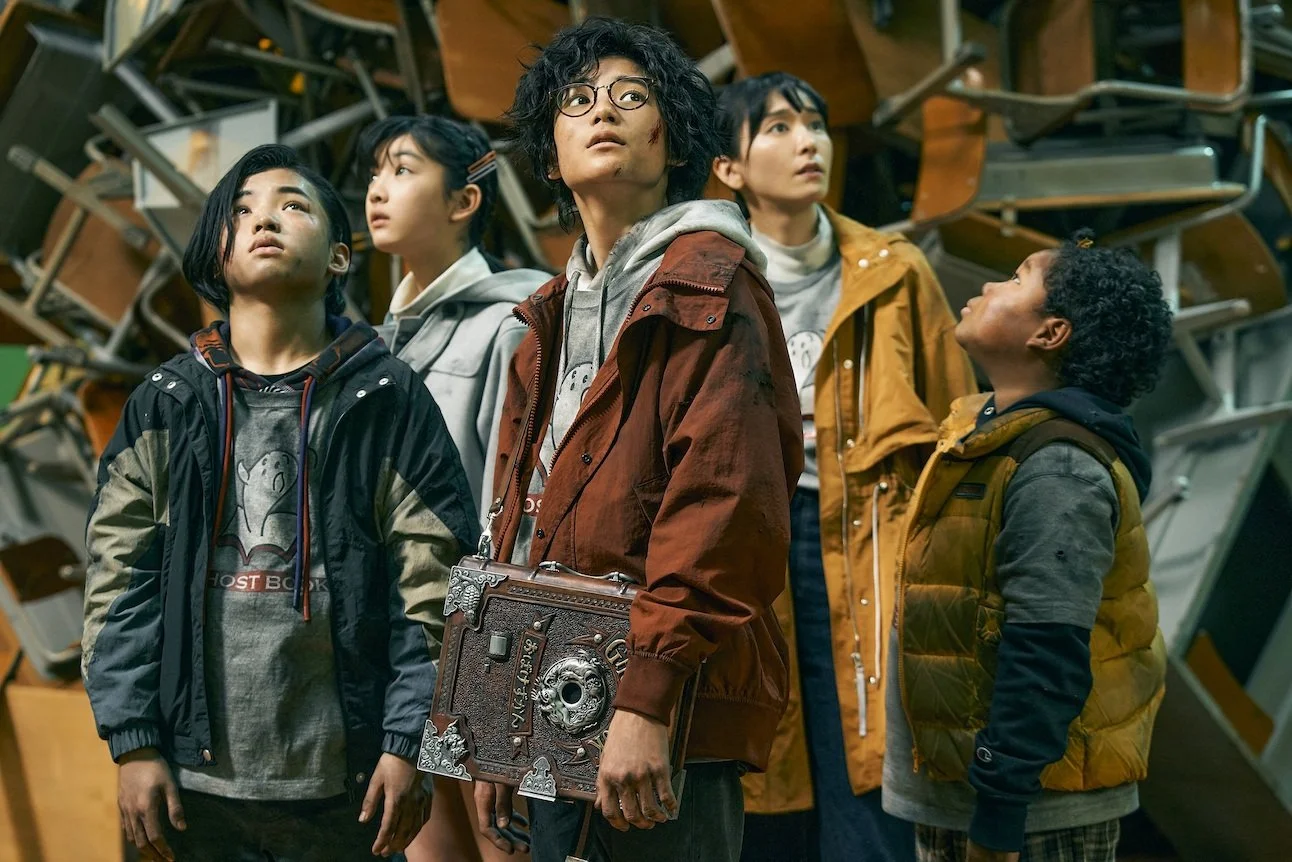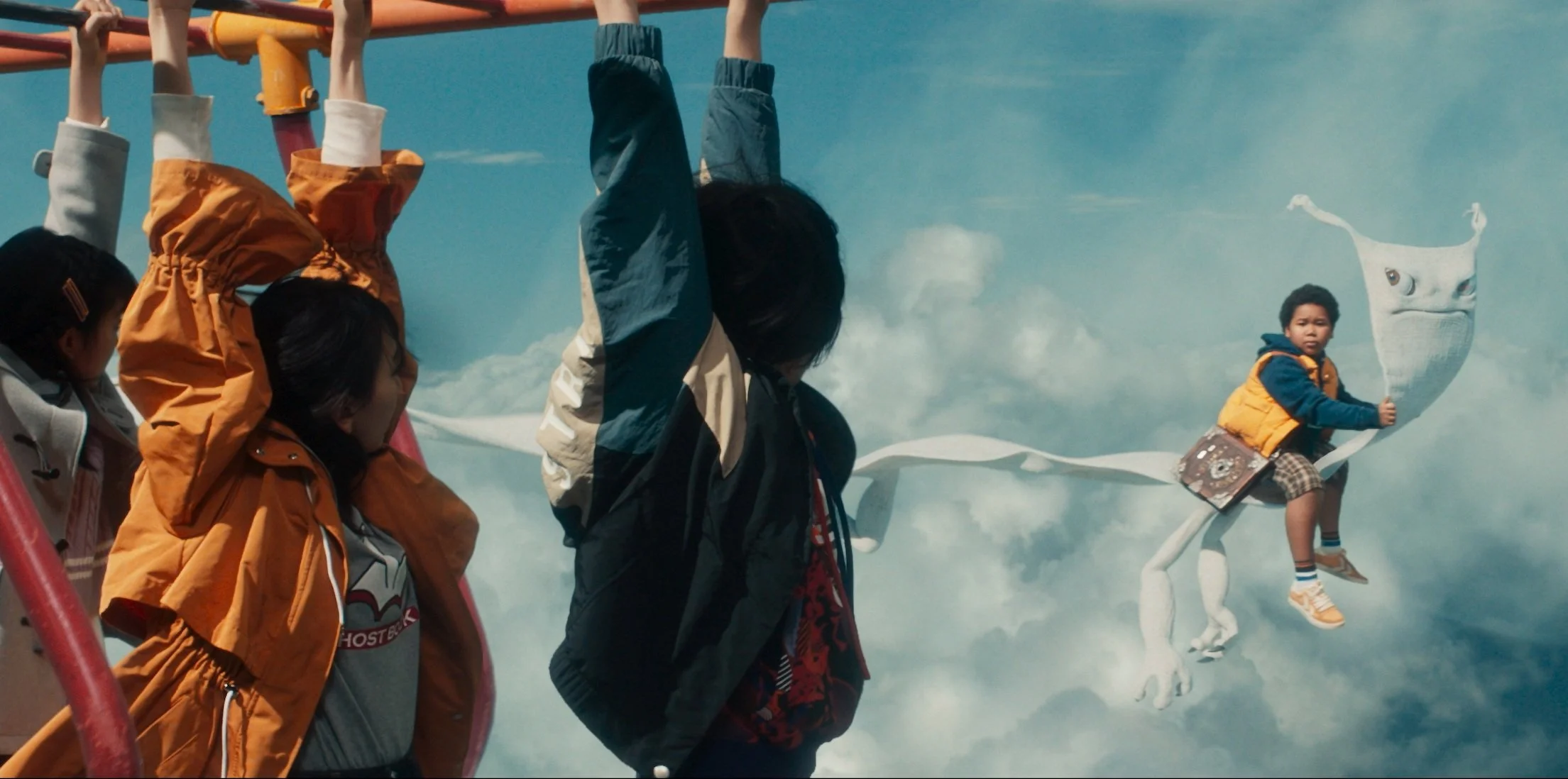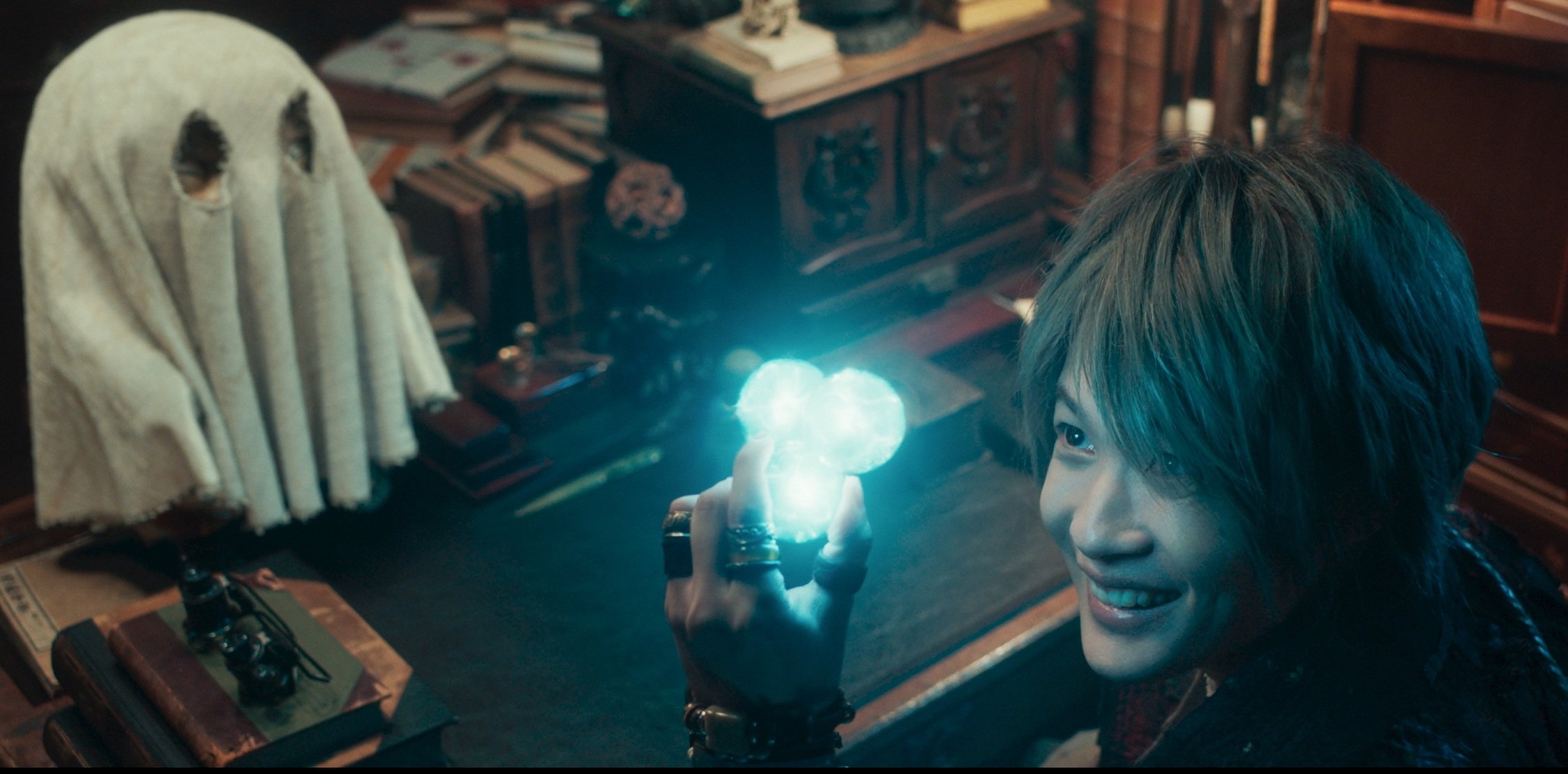Monster Mash
Think you can make a movie from an encyclopaedia? VFX whiz Takashi Yamazaki thinks you can. Watch your back, Britannica.
YOKAIPEDIA
Director: Takashi Yamazaki • Writer: Takashi Yamazaki, based on Ghost Book by Hiroshi Saito and Etsuyoshi Miyamoto
Starring: Kairi Jyo, Fuga Shibazaki, Sonny McClendon, Ayaka Yoshimura, Yui Aragaki, Ryunosuke Kamiki, Rie Kugimiya, Tomokazu Sugita, Hiro Shimono, Akio Otsuka, Min Tanaka
Japan • 1hr 47mins
Opens Hong Kong April 5 • IIA
Grade: B-
Am I imagining things? Didn’t Lonely Castle in the Mirror just land, and wasn’t that also about kinds entering a mysterious alternate realm where, following a quest of some sort, they could get a wish granted? No, I’m not imagining things. It did just land and that’s exactly what it was about. Long story short if you can’t get enough of alternate realms and wishes, I present Yokaipedia | おばけずかん, which shakes up the formula by adding that most reliable of mysterious realm tropes: Kids on bikes! When sixth graders Itsuki (Kairi Jyo, Shoplifters) and his pals, Kudo (Fuga Shibazaki) and Sunny (Sonny McClendon) stumble upon a random roadside shrine on the way home, each makes a wish and is visited that night by ghost cat thingy Zukanbo (voiced by Rie Kugimiya). As you do. Zukanbo tells them their wishes will be granted if they complete a life-threatening quest.
If The Goonies, or It, or Stranger Things, or Stand By Me (yeah, no bikes), or Super 8 are your ideal programming, but you also have a fondness for Japanese folklore, get thee to Yokaipedia. This is based on Hiroshi Saito and illustrator Etsuyoshi Miyamoto’s long-running Ghost Book series that, it should be noted, is a directory; an almanac of yokai. Writer-director-FX maestro Takashi Yamazaki (Space Battleship Yamato, Parasyte) made the story up, explaining its little-of-this, little-of-that recognisability. Yokaipedia is obvious in its sentiment and simplistic in its messages, but it makes up for its narrative wateriness with bright images and goofy-fun CGI monsters.
For the uninitiated (and in very short), yokai are Japanese supernatural beings – demons, spirits, nymphs – and can be representative of animals, plants or any number of natural entity, existing, like witches or poltergeists in the West, to explain the unexplainable. In Yokaipedia, they’re prizes to be collected and put back in the Ghost Book in order for wishes to be granted. Itsuki, Kudo and Sunny figure this out the hard way, because after returning to the shrine to figure out the deal on this shared dream thing, it’s become a magical bookshop, whose proprietor (genre vet Ryunosuke Kamiki, Your Name, Last Letter, The Great Yokai War) never gets a chance to explain the rules of the game to the trio because they freak out at something, run through the Tardis-like store and come out in the aforementioned alternate realm. Tagging along is their mousy substitute teacher, Miss Hayama (a very energetic Yui Aragaki), who chased them into the shop for reasons, and eventually the fourth member of their clique, Minato (Ayaka Yoshimura, Lonely Castle in the Mirror). Seems she’s already in the alternate realm and the trio actively resists telling her why. Hmmm…
Naturally, as the quintet goes about collecting the yokai, each gets to prove themself a valuable member of the group, and learn about friendship, sacrifice and persevering. The messages are familiar, as are the multitude of inspirations Yamazaki cribs from, among them Spirited Away and his own past work, with the Boy Wizard the most obvious. Itsuki’s round glasses and the book that writes itself leave little room for interpretation. Rumour has it Yamazaki is working on a Godzilla film, and given that the creatures in Yokaipedia are far more engaging than the people, that bodes well for Gojira. Ittan Momen (Hiro Shimono), a flying bedsheet that looks more like a giant piece of toilet paper (which Sunny rides), the 100-eyed Hyakume (veteran voice actor Akio Otsuka) and the time-controlling boss Jizuri (Min Tanaka, Blade of the Immortal) are truly imaginative concoctions, and carry that film a long way, as do its otherworldly jumbled street signs and haywire architecture.
It’s almost as if Yamazaki were so focused on getting to the creatures in his feature he merely sketched the story and its characters, and put the barest minimum of work into ensuring either made sense. The characters are archetypes that serve Itsuki, essentially the protagonist, on his way to reconciling feelings of affection and guilt over Minato’s dilemma (that is not a spoiler). However, no matter how impeccably shaggy his hair is or how often Jyo tries to bring Itsuki’s suggested emotions to the surface, he has little to work with and he’s just not a charismatic enough screen presence to make up the difference. The others are just as underwritten: Minato is, let’s see, a girl, Sunny is… checks notes… chubby and Black, and Kudo, despite being set up as the cool bad boy with a heart of gold, is just a dick, constantly pouring salt in the wound of Miss Hayama’s insecurity with the glee of a future serial killer. And why, on a mission with a ticking clock (the book counts down how many monsters are left and the time until… something bad) is there always time for dinner? This is the most laid-back group of ghostbusters ever, but more than that it saps whatever urgency the story has. If we can stop for a smoke break, what’s the point? But it is for kids, and on that level it’s wholesome fantasy that’s undemanding in its familiarity and Japanese enough to inject a stale form with some freshness. Hey, it’s a long weekend, the kids are off school. You could do worse. — DEK



